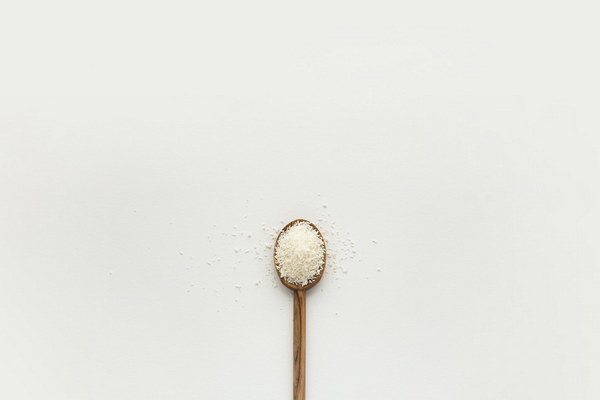Postpartum Recovery The Link Between Insufficient Nutrition and Menstrual Irregularities
Postpartum Recovery: The Link Between Insufficient Nutrition and Menstrual Irregularities
After the joyful experience of childbirth, many new mothers are eager to return to their pre-pregnancy state, both physically and emotionally. However, the postpartum period is a critical time for the body to recover, and neglecting proper nutrition can lead to a range of health issues, including menstrual irregularities. This article delves into the importance of adequate nutrition during postpartum recovery and how it can impact the return of menstrual cycles.
The Postpartum Period: A Time of Vulnerability
The postpartum period, which typically spans the first six weeks after childbirth, is a time when the body undergoes significant changes. The uterus contracts to its pre-pregnancy size, the cervix returns to its normal state, and the placental site heals. During this period, the body requires additional nutrients to support these processes and to replenish the stores depleted during pregnancy.

Nutritional Deficiencies and Menstrual Irregularities
Insufficient nutrition during the postpartum period can lead to a variety of complications, with menstrual irregularities being one of the most common. Here's how a lack of essential nutrients can disrupt the menstrual cycle:
1. Iron Deficiency: Iron is crucial for the production of hemoglobin, which carries oxygen throughout the body. Postpartum hemorrhage, which can occur during the first few days after delivery, can lead to iron deficiency. This can result in heavy menstrual bleeding, known as menorrhagia, and an extended menstrual cycle, or amenorrhea, where periods do not return.
2. Calcium Deficiency: Calcium plays a vital role in muscle contraction, including the muscles of the uterus. A deficiency in calcium can lead to uterine cramps during menstruation and can also affect the timing and regularity of menstrual cycles.
3. Protein Deficiency: Protein is essential for tissue repair, including the repair of the uterine lining after each menstrual cycle. Without sufficient protein, the body may struggle to heal the uterine lining properly, leading to irregular periods.
4. Vitamin D Deficiency: Vitamin D is important for bone health and plays a role in the regulation of the menstrual cycle. A deficiency can lead to irregular cycles and can also contribute to premenstrual syndrome (PMS) symptoms.
5. Folic Acid Deficiency: Folic acid is vital for the production of red blood cells and the prevention of neural tube defects in the developing fetus. While its importance is most critical during pregnancy, it also plays a role in postpartum recovery and can affect menstrual cycles if levels are low.
Promoting Postpartum Recovery Through Nutrition
To ensure a smooth return of the menstrual cycle and support overall postpartum recovery, new mothers should focus on the following nutritional strategies:
- Increase Iron Intake: Consume iron-rich foods such as lean meats, poultry, fish, beans, lentils, and fortified cereals. Pair these with vitamin C-rich foods to enhance iron absorption.
- Ensure Adequate Calcium Intake: Incorporate dairy products, leafy greens, tofu, and calcium-fortified foods into the diet. If dietary sources are insufficient, consider calcium supplements.
- Consume Sufficient Protein: Include a variety of protein sources such as lean meats, poultry, fish, eggs, dairy, legumes, and nuts in the diet.
- Vitamin D and Folic Acid Supplementation: If dietary intake is low, consider vitamin D and folic acid supplements, especially if you are breastfeeding or have a history of irregular periods.
- Hydration: Staying hydrated is crucial for overall health and can help with the regulation of the menstrual cycle.
- Balanced Diet: Aim for a well-balanced diet that includes a variety of fruits, vegetables, whole grains, and lean proteins to ensure a wide range of essential nutrients.
Conclusion
Postpartum recovery is a delicate phase that requires attention to nutrition. Insufficient nutrition can lead to menstrual irregularities and other health issues. By focusing on a balanced diet, including essential nutrients, and addressing any deficiencies, new mothers can support their bodies' recovery and promote the return of regular menstrual cycles. Remember, seeking advice from healthcare providers is crucial in developing a personalized postpartum nutrition plan that meets your individual needs.









